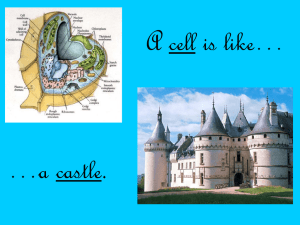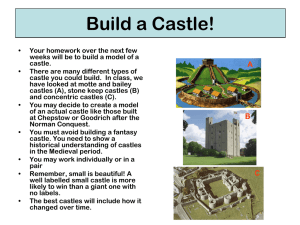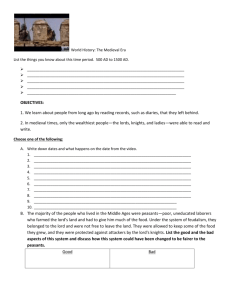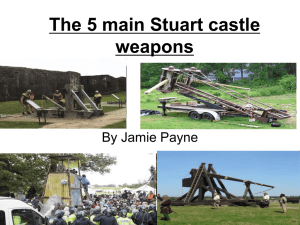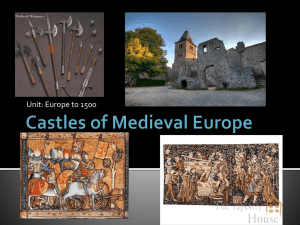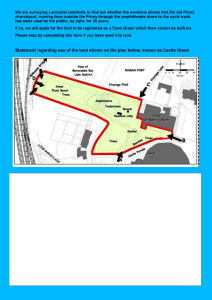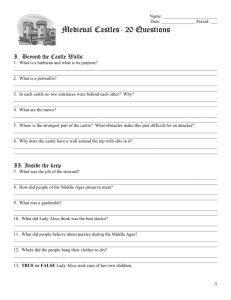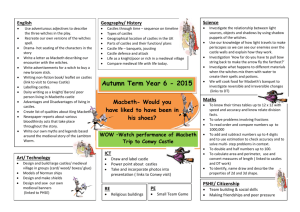Powerpoint: Castles - Thompson Middle School
advertisement
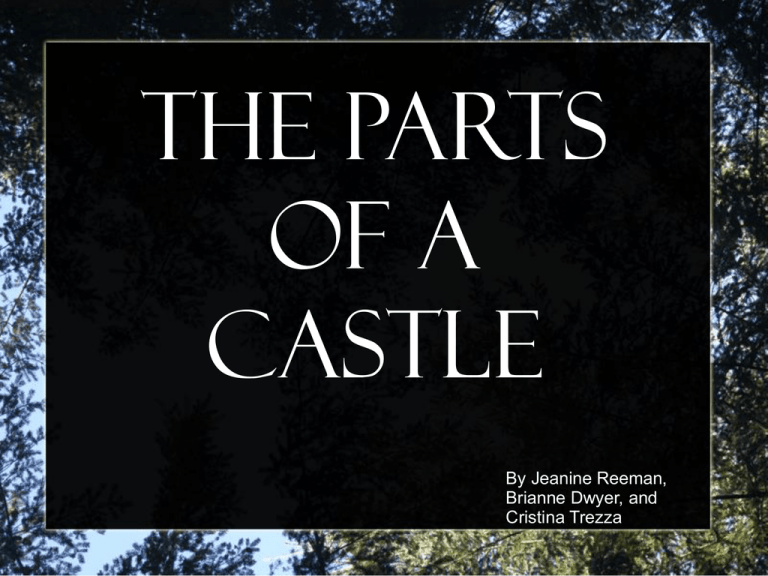
The Parts of a Castle By Jeanine Reeman, Brianne Dwyer, and Cristina Trezza The Main Idea A castle had one or more courtyards. Along the inside of the courtyard walls were the main rooms in buildings. Everyone ate near the great hall. Others things such as stables, workshops, and extra rooms were found in buildings farther away from the great hall. However castles were not just buildings, they were also fortresses during war. Why Some Towers Were Round Square towers had weak corners Defenders could fire arrows from all directions Their importance for defense made them extremely popular in the Middle Ages Moats Used for defensive purposes Prevented undermining of the castle Were either filled with water or stakes to make a barrier for men and horses Dungeons Used for holding prisoners In extreme cases used for torturing them Murder Holes Used for defensive purposes Heavy stones, hot sand, boiling lead, and boiling tar were dumped onto enemy soldiers as they passed by Holes in the ceilings of castle gate ways The Drawbridge Used for defensive purposes. A wooden platform with one hinged side that connected it to the castle and the other side was raised with ropes or chains. The Portcullis Used for defensive purposes. A heavy, spiked door hung from the gatehouse or barbican ceiling. The ropes could be cut quickly and it would fall down, blocking the entrance of invaders. Crenellations Used for defense and attack. Regular gaps built at the top of castles for firing arrows. The Gatehouse Used for defense and attack purposes. The entrance to the castle. A fortified structure. Might be defended by the barbican. Barbican Used for defense attack purposes. At the entrance of the castle, confining the enemy in a thin passage. The exterior passage leading to the main entrance, the Gatehouse. Contained Murder Holes, arrow slits, called death traps. Curtain Wall Used for defense purposes. The outer wall surrounded by the Motte and Baily castles. 6-20 feet thick 45 feet high 1, 500 feet long The Keep Used for defense purposes. Strongest place in the castle. At first, keeps were square, but then they were designed into a circular shape. This is because square corners were vulnerable to attacks. THE END

